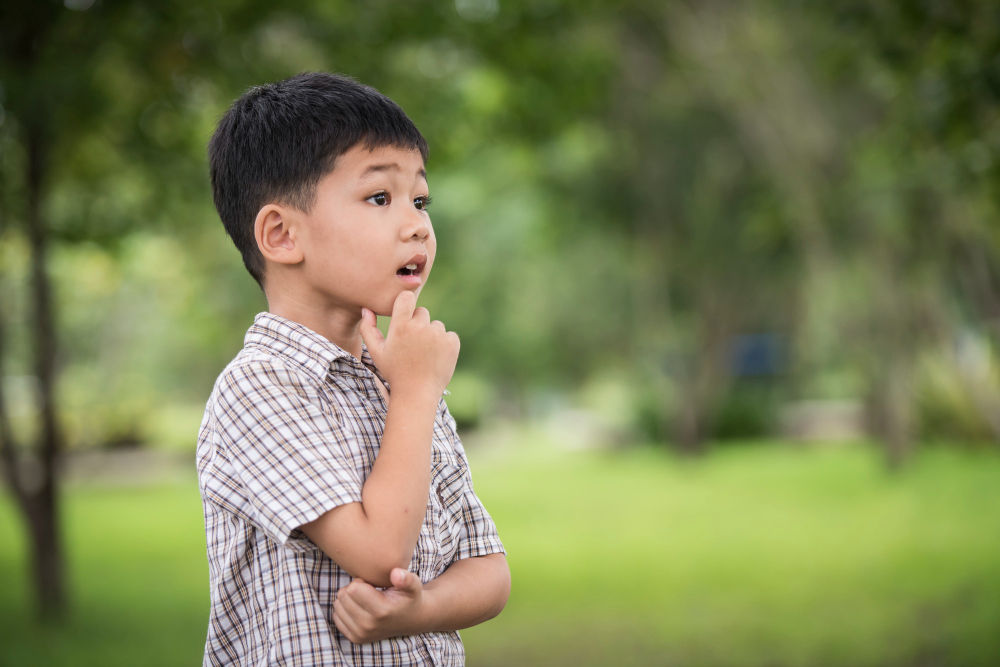Critical thinking is a soft skill that is critical in the real world. Adults are required to have experience using this skill in order to progress further in their professional careers.
You might think that critical thinking is only fostered when we are old enough to recognize it.
But, critical thinking skills are often first developed as early as during primary school.
There is evidence that supports that students are encouraged to be critical thinkers for even the simplest problems. The logic is – once someone is used to applying the skill, they would be good critical thinkers in the future.
In this article, we’ll cover critical thinking’s meaning for kids, including its definition, benefits, and daily life examples.
After reading this, parents will be more aware of how important it is for their child to have the ability to think critically in primary school!

What is critical thinking?
There isn’t much difference between critical thinking’s meaning for both adults and children.
Critical thinking, in general, is when one carefully examines a problem or situation to come up with their own solution, away from assumptions or other people’s opinions.
Essentially, to think critically is to be open minded and look at the bigger picture without any bias.
In other words, students need to practice being objective instead of being influenced by outside sources, both their own or from others.
This means that children don’t just take any information at face value and strive to dig deeper to evaluate arguments.
Critical thinking requires the process of conceptualizing, applying, analyzing, and synthesizing one’s own conclusion on the subject matter by evaluating the information gathered.
To put it simply, here are the general steps involved in critical thinking:
- Determine and understand the situation or problem
- Find and organise relevant information about the problem
- Develop a list of potential solutions.
- Analyse the success and failure of different solutions.
- Implement the best solution for the problem
Of course, students don’t need to strictly follow these steps. They can adjust according to the situation or problem they face.
Benefits of critical thinking
Of course, there are various benefits attached to the use of critical thinking, especially for kids. The sooner they learn to adopt a critical mindset, the better they will be at solving various scenarios in the future.
Here are several benefits that kids can immediately feel after being critical thinkers:
- Improve their problem solving skills
Yes, critical thinking is directly related to students’ problem solving. After all, one needs to have the ability to analyze situations in order to solve the problem, don’t you think?
By consistently using a critical mindset, children will also be able to solve more complex problems in the future.
- Become more independent thinkers
By being critical thinkers, children won’t need to wait for someone else to step up and solve the problem. They will be able to craft their own ideas without needing to rely on anyone else.
Children will also become more comfortable in taking the initiative to become a team leader and brainstorm with their peers.
- Become effective communicators and listeners
Critical thinking doesn’t just allow children to solve problems effectively – it also helps them become better communicators.
Oftentimes, when you want to get to the heart of the matter, clear and straightforward communication is the best method to receive swift results.
Becoming critical thinkers will also help children learn patience and become good listeners in order to gain information from various points of views.
- Develop their curiosity to learn
Of course, when you want to solve a problem, you’re naturally curious to learn any information you can get.
By developing children’s sense of curiosity, they will learn to become curious thinkers and always strive to seek more knowledge.
This can be extremely helpful not only to improve their studies, but also their socio-emotional skills for the future!
- Improve their decision making skills
Critical thinking also helps children become more confident in choosing the right decisions.
Since critical thinking requires them to research beforehand, they will have more information in their hands in order to propose the most appropriate solution.
This will also help them become more confident in teamwork and other scenarios.
When do kids use critical thinking?
Here are several scenarios where children can practice using their critical thinking skills:
- At school
- Solving assignment and exam questions
- Meditating any conflict with their friends or classmates
- Resolving any doubts or insecurities with themselves
- Researching how to best improve before a test
- At home
- Proposing the right study plan or schedule for them
- Figuring out how to negotiate for the toy they want
- Finding out any hobbies they want to try
- Knowing when to relax and when to study
Learn to use critical thinking with Practicle!
Enhancing kids’ critical thinking skills early on will allow them to be more competent in handling any scenario in their future.
Thus, it’s important to consistently practice this skill both at school and in their home.
Parents can consider using Practicle’s math learning game to aid their child’s critical thinking skills!
The math game’s MOE-based curriculum allows primary school children to learn math through fun quests and challenges. Its flexibility and accessibility also makes it possible for children to learn anywhere, anytime.
Navigate Practicle’s math game today using our 7-day free trial.
